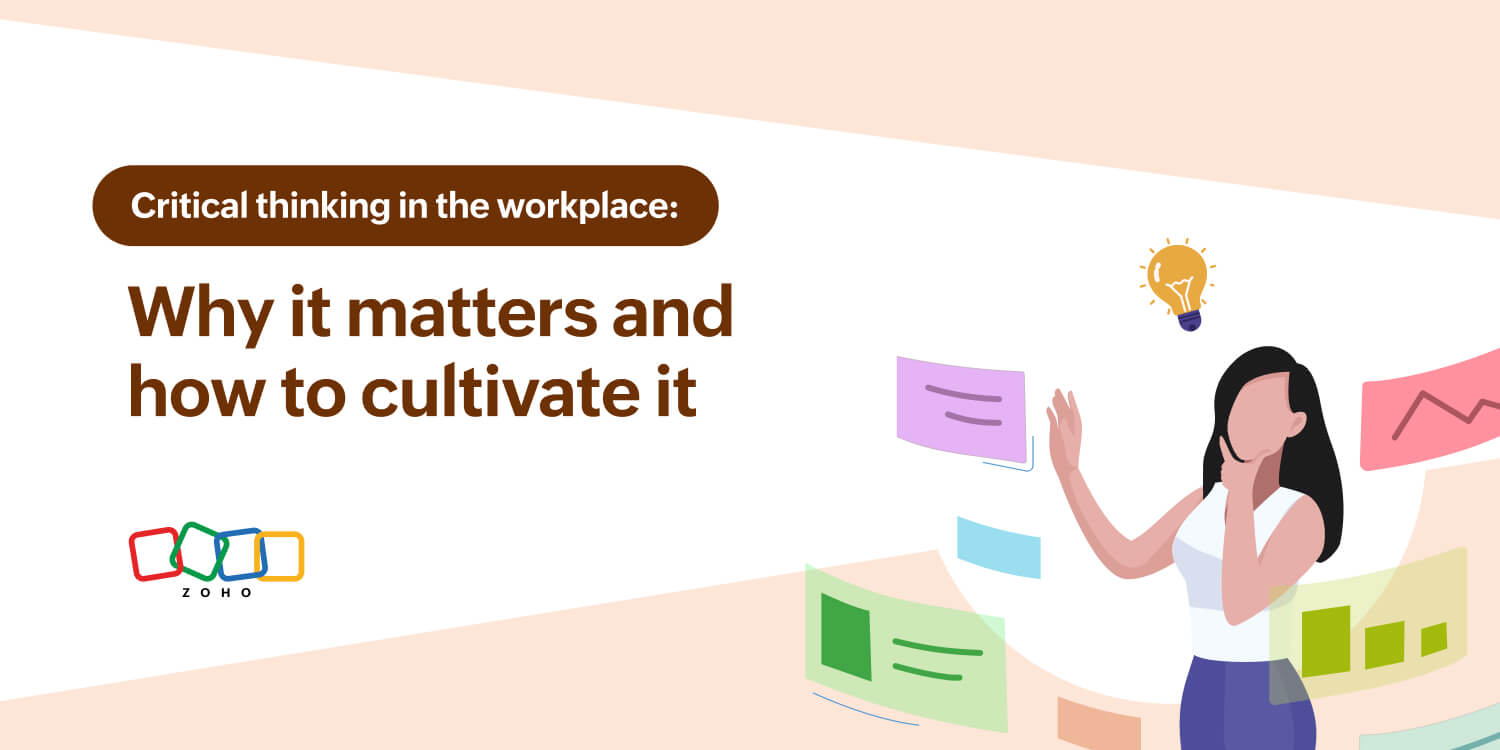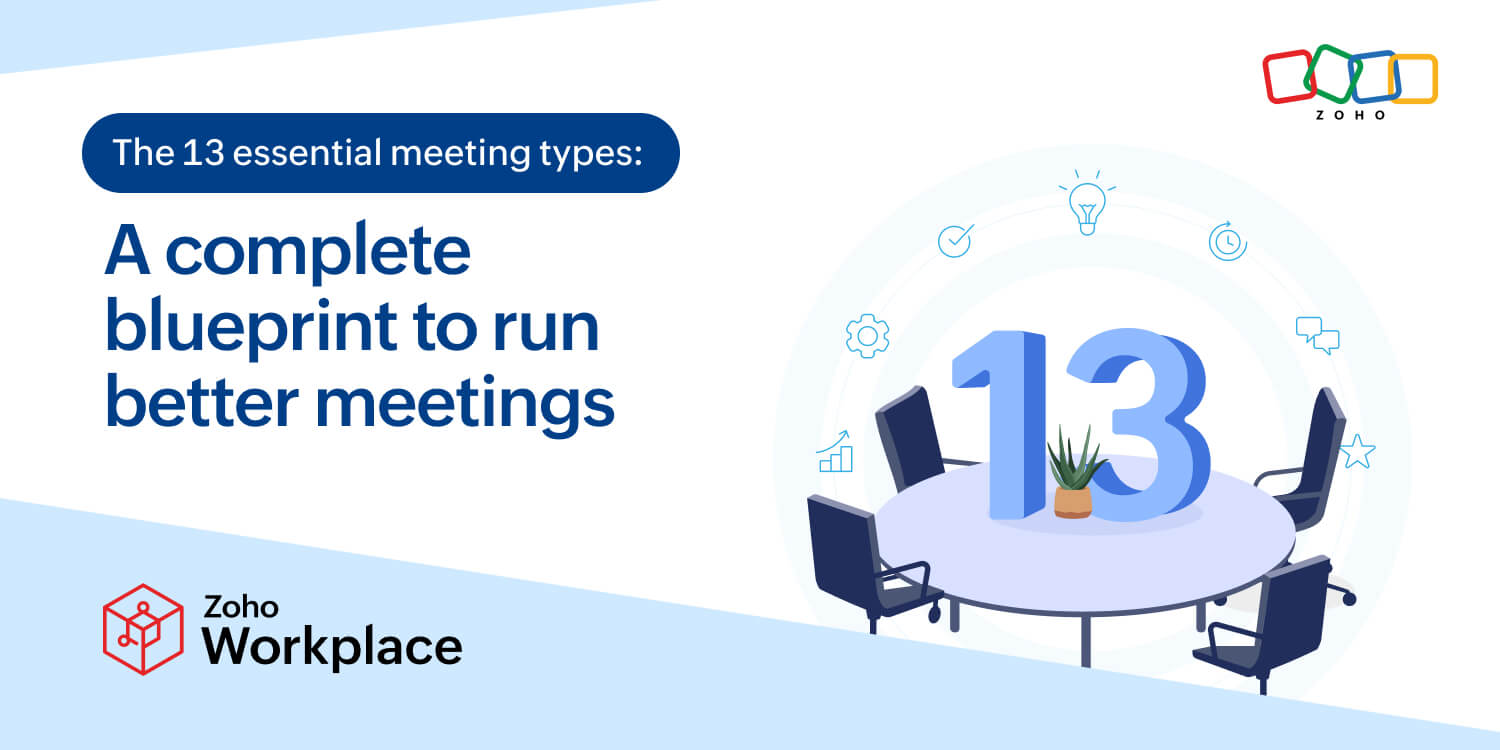- HOME
- All Topics
- Critical thinking in the workplace: Why it matters, and how to cultivate it
Critical thinking in the workplace: Why it matters, and how to cultivate it
- Published : June 4, 2025
- Last Updated : June 4, 2025
- 977 Views
- 5 Min Read
Have you ever paused before forwarding a news article just to double-check whether it’s true? Or took a break between a heated work discussion to ask yourself, “Is this really the ideal way to handle it?”
That pause, that moment of reflection, is critical thinking at work.
In our daily lives, we’re making decisions, both big or small, constantly. According to a report by the World Economic Forum, critical thinking is one of the top 5 skills the modern workforce needs, yet it’s something we’re not formally taught.
So let’s explore what critical thinking means at work and, more importantly, how you can get better at it every day.

What are critical thinking skills, and why do they matter?
Think of critical thinking as your brain’s built-in filter. Not for blocking things out, but to help you make sense of what’s coming in.
Whether you’re responding to a tricky email, solving an issue in your team, or deciding the best way to present your ideas, your ability to think clearly and rationally shapes the outcome. And in fast-moving workplaces, that skill can make the difference between reacting and responding, rushing and reasoning.
At its core, critical thinking means being curious, cautious, and clear-headed. It’s not about being skeptical of everything, but rather about being thoughtful and intentional in how you process information, solve problems, and make decisions.
In the workplace, this can show up in small ways, like double-checking the logic in a report or deciding whether to invest in a new tool or pitch a new idea. It’s the skill that helps you avoid costly mistakes, ask better questions, and come up with solutions that work, not just quick fixes.
If you’re wondering how this is different from problem-solving, here’s a quick way to look at it:
- Problem solving is about fixing the leak.
- Critical thinking is about figuring out why there’s a leak in the first place, and whether fixing it is even the best option.
In short, problem-solving is the action; critical thinking is the approach.
Why fostering critical thinking in the workplace is important
When we’re constantly bombarded with information, being able to think critically helps you stand out. It's not about knowing more—it’s about thinking better.
Imagine two teams tackling the same issue: a sudden drop in product engagement.
- Team A jumps to conclusions: “Let’s revamp the design. People probably hate the layout.”
- Team B pauses, pulls data, reviews recent customer feedback, and asks: “What changed? Could it be the onboarding flow, or maybe a bug in the last update?”
Which team do you think saves time, avoids rework, and ends up making a smarter call? That’s the value of critical thinking and why fostering it in the workplace is so important.
For employees
Critical thinking empowers employees to:
- Make better decisions independently without always needing to escalate.
- Spot potential issues before they become actual problems.
- Communicate more effectively because their reasoning is clear and well thought out.
- Grow into leadership roles as they learn to look beyond tasks and think in terms of outcomes.
Real-life example:
A customer support rep notices repeat complaints about a specific feature. Instead of just responding with standard answers, they raise a flag with the product team, along with a short pattern report. That insight leads to a quick fix and a noticeable drop in tickets. The rep didn’t just solve a problem. They thought critically and helped prevent future ones.
For employers and teams
From an organizational perspective, critical thinking leads to:
- Smarter strategies and fewer hasty decisions.
- Healthier team discussions where ideas are challenged constructively, not personally.
- Better problem-solving under pressure because teams are less reactive and more thoughtful.
- A culture of learning and ownership, where people don’t just follow instructions; they improve them.
Real-life example:
A sales team runs a discount campaign expecting a surge, but numbers drop. Instead of blaming the offer or the sales reps, the marketing manager questions the timing. On closer review, they discovered a key competitor launching a bigger offer the same week, drawing away customers. Lesson learned: They now run competitive scans before big pushes. They didn’t just react; they asked why and used that insight to build a smarter strategy.
How to build critical thinking skills (in general and at work)
We’ve seen how valuable critical thinking can be for individuals, teams, and organizations. But here’s the thing: Critical thinking isn’t something you're either born with or not. It’s a skill, and like any skill, it can be learned, practiced, and strengthened over time.
The good news? You don’t need to enroll in a course or read a dozen books to start. You just need to approach your day a little differently.
Here’s how:
1. Start by asking better questions.
Instead of jumping straight to conclusions, pause and ask:
- What’s happening here?
- What evidence supports this?
- Is there another perspective I haven’t considered?
For example:
You’re given a task to “fix the low engagement on our newsletter.” Instead of jumping in with ideas, you ask: Which metrics are low? Has something changed recently? Who is the audience? That pause helps you address the real issue, not just the visible symptom.
2. Break down big problems.
Large challenges can feel overwhelming. A critical thinker breaks them into smaller, solvable parts.
For example:
Your team is struggling to meet deadlines. Instead of assuming everyone’s just slow, you break it down:
- Are tasks clearly assigned?
- Is there too much rework?
- Are priorities shifting too often?
That breakdown often reveals simpler fixes.
3. Get comfortable with “I don’t know”.
Critical thinkers aren’t afraid to admit what they don’t know. That’s where learning begins.
For example:
In a meeting, someone uses a term you’re unfamiliar with. Instead of nodding along, you ask for clarity. Not only do you learn, but others may benefit too.
4. Practice seeing the opposite side.
Before locking in your view, ask: What would someone who disagrees with me say?
For example:
You’re proposing a switch to a new tool. You believe it’ll boost productivity. But you pause and ask: What might frustrate the team about this? That thought leads you to offer better onboarding and support—making your case even stronger.
5. Reflect often, not just when things go wrong.
After finishing a task or a project, take a minute to reflect:
- What went well?
- What could I have done differently?
- What did I assume that turned out to be untrue?
This kind of reflection helps you make better choices the next time.
Conclusion
Now that you know practical ways to build and strengthen your critical thinking skills, it’s clear that this isn’t just another checklist item; it’s a mindset that transforms how you approach work every day.
Critical thinking isn’t just a buzzword or a skill reserved for analysts and managers. It’s something anyone can develop, and it’s one of the most valuable tools you can bring to your work.
By learning to ask better questions, break down problems, stay curious, and regularly reflect, you become someone who doesn’t just react to challenges but navigates them with confidence and clarity.
So, take that first step today. Pause before you act, challenge your assumptions, and see how your work, and your impact, starts to change for the better.
How do you practice critical thinking in your daily work? Share your tips, stories, or questions in the comments below; let’s learn from each other and grow together!
 Revathi Selvaraj
Revathi SelvarajRevathi is a product marketer at Zoho Workplace. She writes about topics related to workplace collaboration, productivity, and personal development. Outside of work, she enjoys painting, cooking, and occasionally laughing at her own jokes, all while embracing the present moment.


